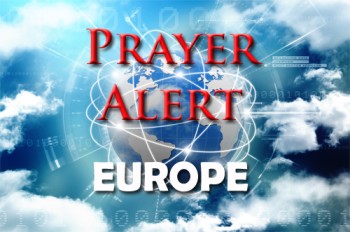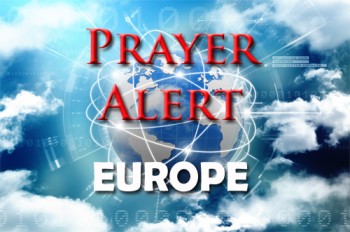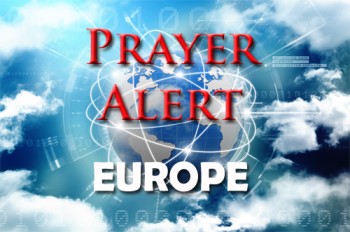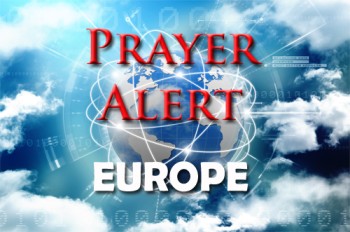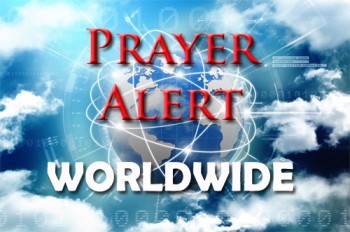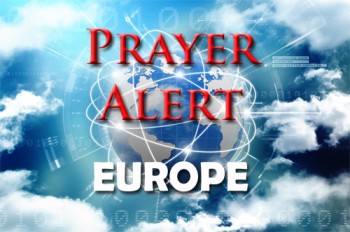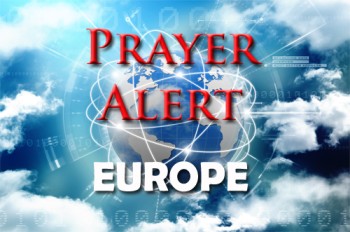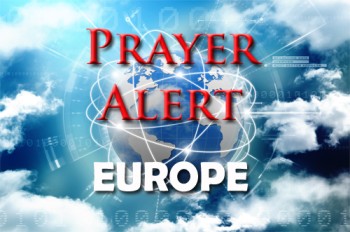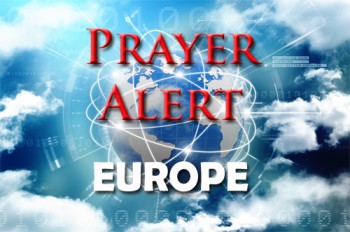Displaying items by tag: Vladimir Putin
Ukraine: Trump claims ‘great progress’ in talks with Putin
Donald Trump has described talks on 6 August between his envoy Steve Witkoff and Vladimir Putin as ‘highly productive’, claiming that ‘great progress’ has been made toward ending the Ukraine war. The Kremlin issued a vague statement confirming the exchange of ‘signals’ but did not give further details. The meeting occurred days ahead of Trump’s ceasefire deadline, amid mounting frustration over stalled peace efforts. Volodymyr Zelensky and European leaders were briefed on the talks and reiterated the need to end the war. Despite Trump’s threats of increased sanctions, including raising the tariff on India to 50% for buying Russian oil, Russia has continued its attacks on Ukrainian cities. Three years into the invasion, peace talks have repeatedly failed, and Russia’s preconditions remain unacceptable to Kyiv. Meanwhile, the USA has approved $200 million in military support to Ukraine, with Trump still open to meetings with both Putin and Zelensky. The humanitarian toll of Russian strikes remains devastating and ongoing.
Russia: minister’s death a warning to ruling elite
Russia has been rocked by the sudden death of transport minister Roman Starovoit, who was found dead from a gunshot wound just hours after being dismissed by Vladimir Putin. With the presumption that he took his own life, this rare occurrence has sparked shock and speculation across Russian media. He had previously served as governor of the Kursk region, where he oversaw the construction of costly but ultimately ineffective defensive fortifications along the Ukrainian border. His former deputy and successor have since been arrested on fraud charges, and some believe Starovoit feared imminent prosecution himself. Analysts have drawn parallels to Soviet-era purges, suggesting the growing sense of fear and repression within Russia’s political elite. State media has downplayed the event, with only brief mention on national television. But for Russia’s governors and ministers, Starovoit’s death sends a chilling signal: in today’s political climate, even stepping down can come with grave consequences.
Ukraine / Russia: delegations arrive in Istanbul, but not Putin
Peace efforts between Russia and Ukraine took a cautious step forward as Russian delegates arrived in Istanbul on 15 May for proposed negotiations. Volodymyr Zelensky had invited Vladimir Putin to meet in person, but Putin declined, appointing aide Vladimir Medinsky to lead Russia’s delegation. The absence of top Russian officials, including foreign minister Sergey Lavrov, cast doubt on Moscow’s seriousness. Ukraine, emphasising the need for high-level talks, questioned the format and substance of the meeting. Zelensky said he would decide Ukraine’s response after seeing Russia’s true intentions. Ukraine and its allies had urged an unconditional ceasefire from 12 May, a proposal Moscow ignored. Donald Trump, who at one stage expressed interest in attending, will not participate, though Marco Rubio, Steve Witkoff, and NATO secretary Mark Rutte could do so. The situation remains fluid, with uncertainty surrounding whether the talks will lead to meaningful de-escalation or remain another missed opportunity.
Ukraine: Putin announces three-day ceasefire
Vladimir Putin has announced a new three-day unilateral ceasefire, to run from 8 to 10 May, coinciding with Russia’s World War II commemorations. It follows a previous thirty-hour Easter ceasefire, which critics say Moscow repeatedly violated. The Kremlin frames these brief pauses as humanitarian gestures; Ukrainian officials argue that if Russia truly sought peace, it would halt hostilities immediately. Foreign minister Andrii Sybiha called for a thirty-day truce instead. Observers question whether Putin’s moves are sincere peace efforts or merely an attempt to influence Donald Trump, who has recently voiced frustration with both Russia and Ukraine. Trump has criticised Putin for continuing attacks on civilian areas and floated harsher sanctions. When in March he proposed a thirty-day ceasefire, Ukraine agreed, but Russia did not. In another development, the much-anticipated natural resources agreement between the USA and Ukraine has been signed: see
Ukraine: Trump’s one-sided peace proposal
The USA has presented Ukraine with a controversial one-page peace framework, described as Donald Trump’s ‘final offer’, which would grant significant concessions to Russia, including recognition of its occupation of Crimea and of territories which it has captured since the war began. In exchange, Ukraine would receive vague security guarantees, economic aid, and partial territorial returns. The plan also proposes that the USA would operate Ukraine’s Zaporizhzha nuclear plant and distribute its electricity output between the two countries. Sources say Kyiv views the proposal as heavily skewed in Moscow’s favour. Trump’s envoy, Steve Witkoff, drafted the deal after a lengthy meeting with Putin, who has shown interest in freezing current battle lines. However, European leaders remain skeptical of Putin’s sincerity, and critics argue that the deal sacrifices core Ukrainian interests for political expediency. Volodymyr Zelensky has drawn further harsh criticism from Trump for refusing to countenance the loss of Crimea: see The war continues, with the worst Russian attack on Kyiv in months: see
World leaders plan to attend Pope’s funeral in spite of previous differences
As tributes flood in for Pope Francis, attention turns to his legacy of engaging controversial issues such as migration, climate change, and global conflict – and therefore clashing with world leaders. Notably, Francis clashed with Donald Trump over immigration, denouncing his border wall and mass deportation policies. Tensions also emerged with Argentina’s Mauricio Macri and Javier Milei; Milei even called Francis ‘evil’, but softened his tone after taking office. The Pope also criticised Brazil’s Jair Bolsonaro over Amazon deforestation and championed Indigenous rights. On Gaza, Francis condemned Israel’s military actions, suggesting possible genocide - a statement that drew harsh rebukes from Israeli officials. He also condemned the Ukraine war without naming Vladimir Putin directly, while urging dialogue. His ‘white flag’ comment upset Ukrainian leaders. Yet many world leaders - including Trump, Milei, and Zelensky - plan to attend the funeral, honouring a pontiff who never shied from challenge.
Russia: Putin orders 160,000 conscripts
Vladimir Putin has ordered the conscription of 160,000 new troops between April and July, targeting citizens aged 18 to 30. The spring draft is part of Russia’s biannual conscription cycle; the previous autumn round brought in 133,000 recruits. The decree also confirms that those whose conscripted service has ended will be discharged. Last year, Russia raised the conscription age limit from 27 to 30, and now maintains a military force of approximately 2.4 million, with 1.5 million on active duty. Despite increasing manpower, Russia’s war in Ukraine continues to take a heavy toll. Western and Ukrainian estimates suggest over 768,000 Russian troops have been lost—killed, wounded, missing, or captured—since the invasion began in 2022. November 2023 marked a grim record with over 2,000 casualties in a single day. Ukraine, too, has suffered significant losses; Volodymyr Zelensky has recently acknowledged over 43,000 soldiers killed. The drawn-out conflict remains costly and unresolved, as both nations brace for further battles.
Ukraine: Putin agrees to a partial ceasefire
Vladimir Putin has agreed to a thirty-day pause in strikes on Ukraine’s energy infrastructure following a phone call with Donald Trump. The two leaders spoke for 90 minutes as the Trump administration works toward ending the conflict that began with Russia’s 2022 invasion of Ukraine. However, Putin refused the broader ceasefire which the USA has proposed. Volodymyr Zelensky welcomed the energy-targeting pause but insisted that Ukraine should be involved in future negotiations. Putin also demanded a halt to Western military aid and intelligence-sharing with Ukraine before agreeing to any long-term deal. Zelensky rejected this, calling it an attempt to weaken Ukraine. The White House announced that peace negotiations would begin in the Middle East, with talks including a potential Black Sea ceasefire; Putin has agreed to further discussions on these terms. One immediate result of the phone call has been a major exchange of prisoners: see
Ukraine: Russia considers US ceasefire proposal, claims it is regaining Kursk region
US officials have arrived in Moscow to discuss a proposed thirty-day ceasefire between Russia and Ukraine. Special envoy Steve Witkoff hopes to persuade Russia to agree to the deal, which Ukraine accepted earlier this week after talks in Jeddah. The Kremlin confirmed discussions were planned but gave no details. US secretary of state Marco Rubio said that the ceasefire decision now rests with Russia, while Donald Trump warned of financial consequences if Russia rejects peace. Meanwhile, Russia claims to have recaptured 86% of the Kursk region, which Ukraine invaded last year. Vladimir Putin, visiting the area, has reportedly ordered a full military push to reclaim all lost territory. Events this week show a remarkably swift turnaround from a week ago: see
Ukraine: Hegseth defends Trump’s phone call to Putin
US secretary of state Pete Hegseth has defended Donald Trump’s push for peace talks on Russia’s war in Ukraine, insisting it was not a betrayal of Kyiv. Speaking before a NATO meeting in Brussels, Hegseth emphasised the need for a negotiated peace but called Ukraine’s demands - restoring pre-2014 borders and NATO membership - ‘unrealistic’. Trump later confirmed he had spoken with Vladimir Putin, agreeing to initiate negotiations without prioritising territorial concerns or Ukraine’s NATO bid. European leaders voiced concern, fearing premature concessions could embolden Russia. Hegseth asked NATO allies to ramp up defence spending to 5%, a target the US itself does not reach. Volodymyr Zelensky, after speaking with Trump, reiterated his commitment to securing peace while ensuring Ukraine’s security. Questions remain over whether Moscow will accept a deal that meets Kyiv’s conditions. Trump’s advisers are set to meet Zelensky at the Munich security conference to discuss next steps.
